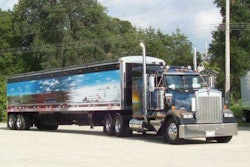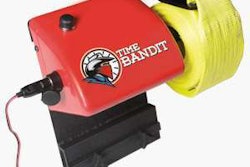In our March 2010 issue, we reported on the impending Comprehensive Safety Analysis 2010. The feds were trying to work out the bugs in nine test states, after starting with Colorado in 2008.
One of the worst problems was that the program was set up to cite truckers and fleets in every truck-involved accident. “If I’m stopped at a stoplight and some idiot drunk with carload of people slams into my trailer, I’m cited for four injuries,” said Dart Transit Vice President Gary Volkman at the time.
The Federal Motor Carrier Safety Administration finally launched CSA 2010 in December 2010. Now it’s just CSA, and the name has changed to Compliance, Safety, Accountability – no small irony considering crash accountability remains CSA’s biggest flaw.
FMCSA officials, in response to our recent coverage of CSA’s ongoing problems, gave a prepared statement saying they “considered developing a crash weighting initiative that would examine the responsibility associated with crashes,” but that further study is needed.
The agency’s excuse for that delay, as well as years of ignoring the problem, appears to be not just the questionable reliability of police reports. It’s also that fleets’ history of truck-involved accidents is a good indicator of future truck-involved accidents, though that’s far too simplistic, says Rob Abbott, vice president of safety policy for the American Trucking Associations.

“That likely reflects not unsafe behavior, but operating environment,” he says. Urban deliveries, for example, yield higher crash rates.
ATA members are fed up with safety hits over situations such as a legally parked truck being hit by a car, Abbott says. Such unfair write-ups hurt the carriers, whose shippers and insurers often demand their CSA Crash Indicator scores.
Furthermore, it detracts from safety because too much enforcement effort gets diverted to the wrong fleets. Instead, Abbott says, CSA “ought to identify fleets that are striking, not being struck.”
Not all accident accountability is as black and white as a truck rear-ended at a red light. Still, FMCSA should be able to fairly reckon with circumstances that obviously exonerate the trucker, Abbott says. ATA even submitted a proposal to FMCSA whereby fleets could submit incidents that were beyond the driver’s control for closer examination.
The agency also did its own study as part of its initiative to improve crash accountability, but has kept it under wraps. “FMCSA should release the results of its study, identify the specific concerns that caused it to place the planned solution on hold, and commit to a timeline for addressing this issue,” said ATA president and CEO Bill Graves.
The agency took a step in the right direction in recent weeks. It added a disclaimer to its websites “to more clearly articulate [the fact that] crash information doesn’t include preventability information,” said Bryan Price, senior transportation specialist for FMCSA, during a webinar last month.
Still, FMCSA needs to go further with crash accountability, providing an appeal process and ensuring that it doesn’t penalize innocent truckers. The livelihood of too many drivers and carriers is at stake.










